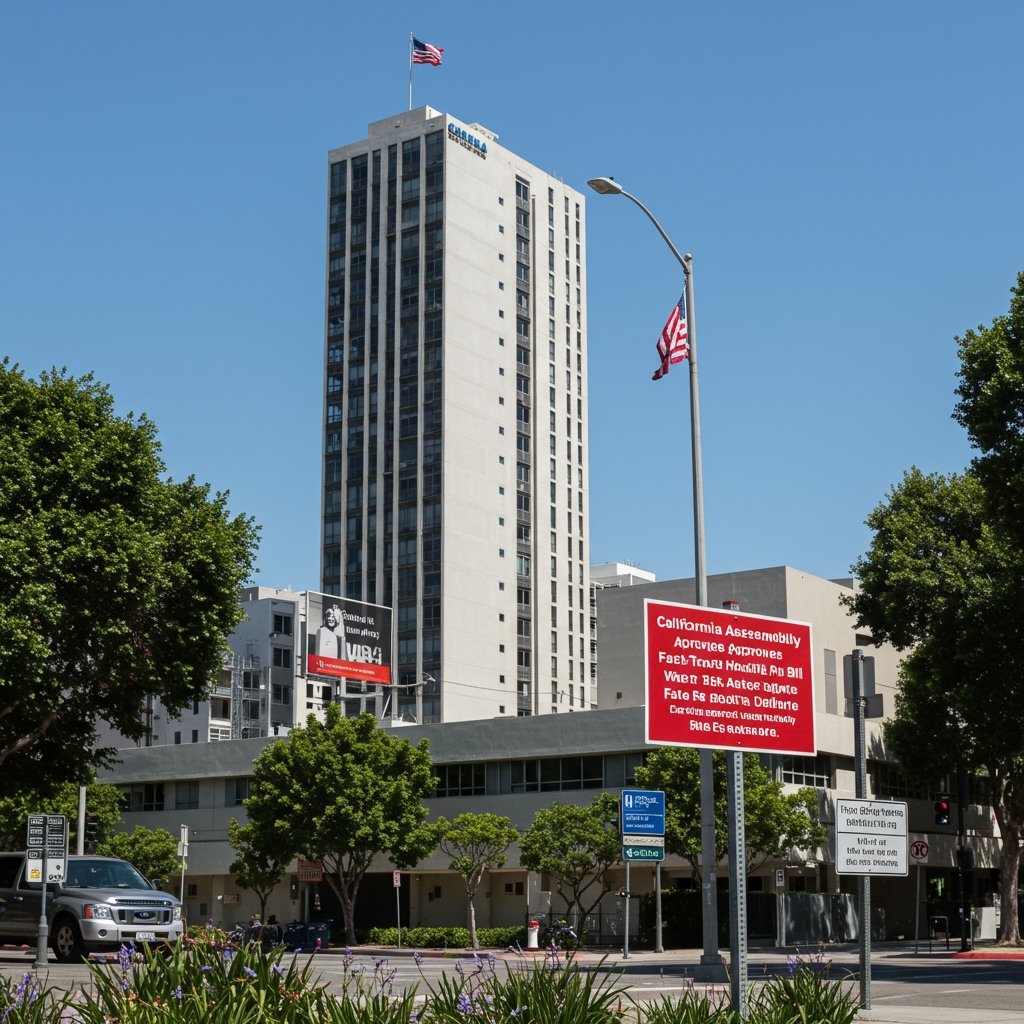California Assembly Advances Controversial Affordable Housing Streamlining Bill
Sacramento, CA – The California State Assembly today took a significant step in addressing the state’s persistent housing crisis, narrowly approving Assembly Bill 101 (AB 101). The measure, which proponents assert will dramatically accelerate the development of affordable housing across California, passed by a tight margin of 41-37. This vote sends the bill to the State Senate, where it is anticipated to face a rigorous examination and a potentially tough fight before the legislative session concludes.
AB 101 is designed with the primary objective of streamlining the complex and often protracted processes that currently govern housing development in the state. Specifically, the bill targets environmental reviews under the California Environmental Quality Act (CEQA) and various local zoning regulations. Proponents argue that these existing regulations, while well-intentioned, have created significant hurdles, delays, and increased costs that effectively stifle the construction of desperately needed affordable housing units statewide. By streamlining these processes for qualifying affordable housing projects, the bill’s supporters claim development timelines could be shortened by months or even years, making projects more feasible and encouraging greater investment in affordable housing.
Aims and Mechanisms of AB 101
The core intent of Assembly Bill 101, as framed by its authors and supporters, is to create specific pathways for affordable housing projects to bypass or significantly shorten certain procedural steps currently required under state law. While the precise mechanisms within the bill’s current language are subject to ongoing debate, the stated goal is to provide targeted exemptions or expedited reviews for developments that meet strict criteria for affordability. This approach is predicated on the belief that the urgency of the housing crisis warrants a tailored approach for projects specifically aimed at low- and moderate-income residents, distinguishing them from market-rate developments. The bill aims to reduce the perceived ‘red tape’ that adds prohibitive costs and timelines, which proponents argue disproportionately impacts non-profit developers and affordable housing initiatives.
The Assembly Floor Debate and Narrow Passage
The 41-37 vote in the California State Assembly today underscores the deep divisions the bill has sparked among lawmakers and stakeholders. The narrow margin indicates that support for AB 101 is far from unanimous, reflecting a difficult floor debate where legislators weighed the urgent need for housing against concerns about potential unintended consequences. The discussion reportedly centered on balancing environmental protection and local planning authority with the imperative to build more homes. Representatives voting in favor emphasized the critical need for bold action to combat the housing crisis, citing the humanitarian and economic impacts of housing unaffordability. Those voting against, while often acknowledging the housing shortage, voiced concerns echoing those of external opposition groups regarding the potential weakening of regulatory oversight.
Opposition Raises Alarms Over Environmental and Local Control Impacts
While proponents hail AB 101 as a necessary reform, a coalition of environmental and local control advocacy groups have voiced strong opposition. Prominent among these are Save Our Shores and the Coalition for Local Control, who argue that the bill, in its current form, represents a dangerous rollback of crucial protections. These groups contend that streamlining environmental reviews could lead to significant negative impacts on natural resources and community character by sidestepping thorough impact analyses and public input processes currently mandated by law.
Save Our Shores, an organization focused on coastal conservation, has expressed particular alarm. They argue that uncontrolled growth, spurred by the bill’s provisions, could disproportionately affect sensitive coastal areas, leading to habitat destruction, increased pollution, and strain on infrastructure in regions already vulnerable to environmental pressures. Similarly, the Coalition for Local Control asserts that by curtailing local zoning review, AB 101 erodes the authority of cities and counties to plan their own development, potentially leading to projects that are incompatible with local needs and existing infrastructure, bypassing the democratic processes that allow communities to shape their future.
Path to the State Senate: A Tough Fight Ahead
With the Assembly’s approval secured, AB 101 now advances to the California State Senate for further consideration. The journey through the Senate is anticipated to be challenging. Given the bill’s controversial nature and the significant opposition it has generated, analysts predict a tough legislative fight. Senators will face similar pressures to their Assembly counterparts: the urgent need for housing solutions versus concerns over environmental safeguards and local autonomy. The bill must navigate Senate committees and eventually the full Senate floor before the legislative session concludes, leaving a limited timeframe for deliberation, potential amendments, and final passage.
Governor Newsom’s Stance
Governor Gavin Newsom’s office has weighed in on legislative efforts to address the housing crisis, indicating conditional support for measures aimed at increasing housing supply and affordability. However, concerning AB 101 specifically, the Governor’s office has not yet taken a definitive stance on the bill’s current language. This suggests that while the administration supports the goal of accelerating affordable housing development, there may be aspects of AB 101 as passed by the Assembly that require further review or potential modification to earn the Governor’s full endorsement. The administration’s position will be critical as the bill moves through the Senate, potentially influencing negotiations and the bill’s final form should it reach the Governor’s desk.
Broader Context: California’s Housing Crisis
The debate surrounding AB 101 unfolds against the backdrop of California’s severe and enduring housing affordability crisis. The state consistently ranks among the most expensive places to live in the United States, driven by a chronic undersupply of housing that has not kept pace with population and job growth. This crisis impacts residents across income levels, contributing to homelessness, long commutes, and economic inequality. Legislative efforts like AB 101 represent attempts by state lawmakers to implement solutions at scale, though finding consensus on the best approach, particularly concerning regulatory reform, remains a significant political challenge. The fate of AB 101 in the State Senate will be a key indicator of the state legislature’s capacity to enact significant changes to housing development policy this session.


















